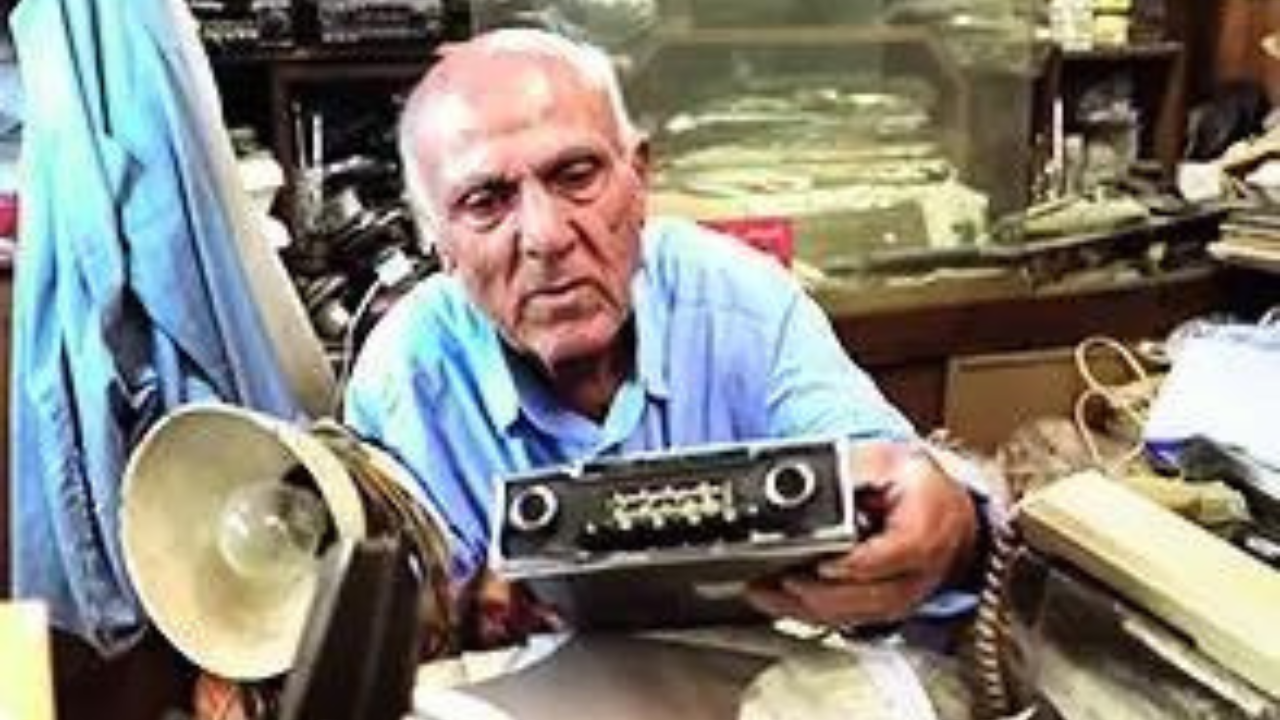[ad_1]
TEHRAN: While tensions remain high between the US and Iran, there’s at least one American that state radio in Tehran invites on the air each week for its millions of listeners. It’s just that he’s a fictional insurance fraud detective who’s been on the case since 1949. “Yours Truly, Johnny Dollar“, a radio programme created by CBS that later found a devoted listenership in Iran for a Farsi-language version under Shah Mohammad Reza Pahlavi in the 1960s, has returned to Iranian radio.
It’s not clear why exactly the network controlled by hard-liners have decided to bring back “the man with the action-packed expense account”, but his reappearance harkens back to an era when Iran and the US enjoyed incredibly close ties.
And the newly produced episodes introduce younger generations to a character that many older Iranians still have a decades-old fondness for. “It is amazing, it reminds me of the ’60s and ’70s, when I listened to it with my parents through a vacuum tube radio,” said Masoud Kouchaki, 73.””We did not have any worries except for guessing how Johnny Dollar would find the murderer.”
The original CBS radio show ran from 1949 until 1962 and focused on the cases of Johnny Dollar, an investigator from Hartford, Connecticut. The serial relied on the investigator’s expenses account entries – like “$10 deposit on the car I rented” or “one dollar, one drink for me” – to propel the story forward as Dollar interviewed witnesses and suspects in the transatlantic accent common to detective stories of the era.
Iran’s version of “Yours Truly, Johnny Dollar” dropped the expense account format but kept the noir-light vibe, dramatic music and US location. Instead, the shows would end with Iranian state radio inviting the public to write in to explain what clue gave away the guilty party, with those getting it right having a chance to win a prize.
After Iran’s 1979 Islamic Revolution, the state radio and TV broadcaster found itself controlled by hardliners. Any programme celebrating America found itself removed. Despite that, Johnny Dollar seems to have passed the test, though the state-run Islamic Republic of Iran Broadcast hasn’t explained its reasoning for allowing it on its radio channel. Ayoub Aghakhani, the director of the newly produced episodes, said it was to “attract more audiences” to radio broadcasts. So far, state radio has broadcast nine episodes and plans to air 17 more.
It’s not clear why exactly the network controlled by hard-liners have decided to bring back “the man with the action-packed expense account”, but his reappearance harkens back to an era when Iran and the US enjoyed incredibly close ties.
And the newly produced episodes introduce younger generations to a character that many older Iranians still have a decades-old fondness for. “It is amazing, it reminds me of the ’60s and ’70s, when I listened to it with my parents through a vacuum tube radio,” said Masoud Kouchaki, 73.””We did not have any worries except for guessing how Johnny Dollar would find the murderer.”
The original CBS radio show ran from 1949 until 1962 and focused on the cases of Johnny Dollar, an investigator from Hartford, Connecticut. The serial relied on the investigator’s expenses account entries – like “$10 deposit on the car I rented” or “one dollar, one drink for me” – to propel the story forward as Dollar interviewed witnesses and suspects in the transatlantic accent common to detective stories of the era.
Iran’s version of “Yours Truly, Johnny Dollar” dropped the expense account format but kept the noir-light vibe, dramatic music and US location. Instead, the shows would end with Iranian state radio inviting the public to write in to explain what clue gave away the guilty party, with those getting it right having a chance to win a prize.
After Iran’s 1979 Islamic Revolution, the state radio and TV broadcaster found itself controlled by hardliners. Any programme celebrating America found itself removed. Despite that, Johnny Dollar seems to have passed the test, though the state-run Islamic Republic of Iran Broadcast hasn’t explained its reasoning for allowing it on its radio channel. Ayoub Aghakhani, the director of the newly produced episodes, said it was to “attract more audiences” to radio broadcasts. So far, state radio has broadcast nine episodes and plans to air 17 more.
[ad_2]
Source link



